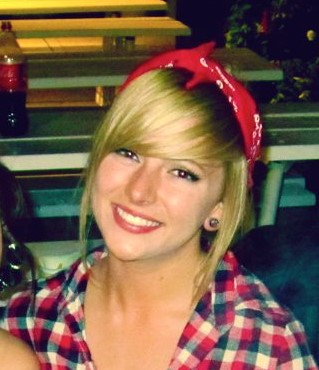Hannah H.
- Jessica Hulsey

- Jan 17, 2021
- 3 min read
By Hannah's mom, Barbara

Hannah Hartl
Rancho Palos Verdes, California
Hannah was a smart, witty, caring young woman. She brought the life to any party with her infectious, sometimes twisted, sense of humor. As parents, she was the daughter we all hope for. She was a self-motivated honors student, cool-as-a-cucumber ice hockey goalie, and a protective big sister to her two siblings. She enjoyed skiing, swimming, traveling and hanging out with her family.
As Hannah went through her teen years, she gravitated towards a partying culture and became somewhat of a music "savant." As she continued on her college education at UCSC, little did Hannah realize that the all-too-easy to get, ubiquitous, and cheap (cost of a six pack) heroin would savagely alter her brain chemistry and bring with it the disease of addiction. Lacking a true understanding as to how this drug works, Hannah did not initially recognize the signs of addiction.
Just last year when Hannah realized that she had become dependent on heroin, she went to Urgent Care to get help. The only "help" they could give her was a taxi voucher home. The following day, she returned to the hospital where, again, she was handed a taxi voucher and sent away. In desperation, she called me, her mom, for help. Unfortunately, like most families, we understood very little about addiction and heroin, and were unfamiliar with what steps to take. We did what we thought was best and sent her to a treatment center, a path which we now understand was ineffective and inadequate on many levels.
Given that Hannah didn’t match the heroin addict stereotype we had in our minds, as she continued on in college we thought everything was essentially under control. Even after the course of treatment, none of us understood the insidiousness of this drug, the relentless grip of addiction, nor the absurd statistical odds against her survival.
Although Hannah’s active addiction only lasted for two months, as so often happens with this disease, she relapsed with someone she had met at the treatment center. She was able to bounce back and when she began her senior year at school, she believed she was well-equipped to manage her addiction and we did too.
Then she died.
Like many young students during winter finals, Hannah stayed up for many nights in a row studying. She did not die from a heroin overdose--smart, witty, Hannah made a calculation error. She did not factor exhaustion into the equation when taking "just a little" heroin to go to sleep. The dose of heroin itself did not kill her; because she was so exhausted the heroin fatally compromised her natural reflexes to re-position herself while she slept. With her head surrounded by an array of pillows, she slowly suffocated. Hannah did not want to die; the morning of her death she had just turned in one of the last term papers she needed to earn her Bachelor's Degree in Psychology. On the floor next to her bed was a pile of LSAT study books and underneath her pillow was a "To Do" list.
Hannah's tragic and untimely death at the age of 22 has shaken our family to its deepest core. We wish to save other families from the profound, permanent agony of needlessly losing a child. In memory of our daughter and in celebration of her life, we created the Hannah Dakota Memorial Fund. Please visit us at www.HannahDakotaFund.org to read about our mission.
.png)










Comments